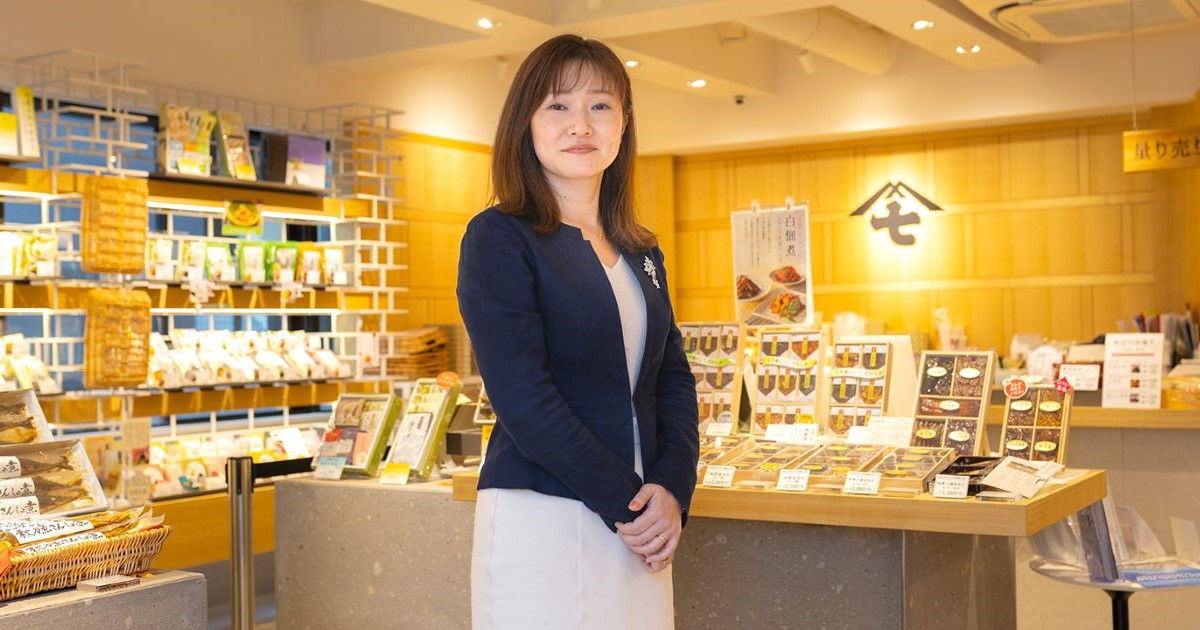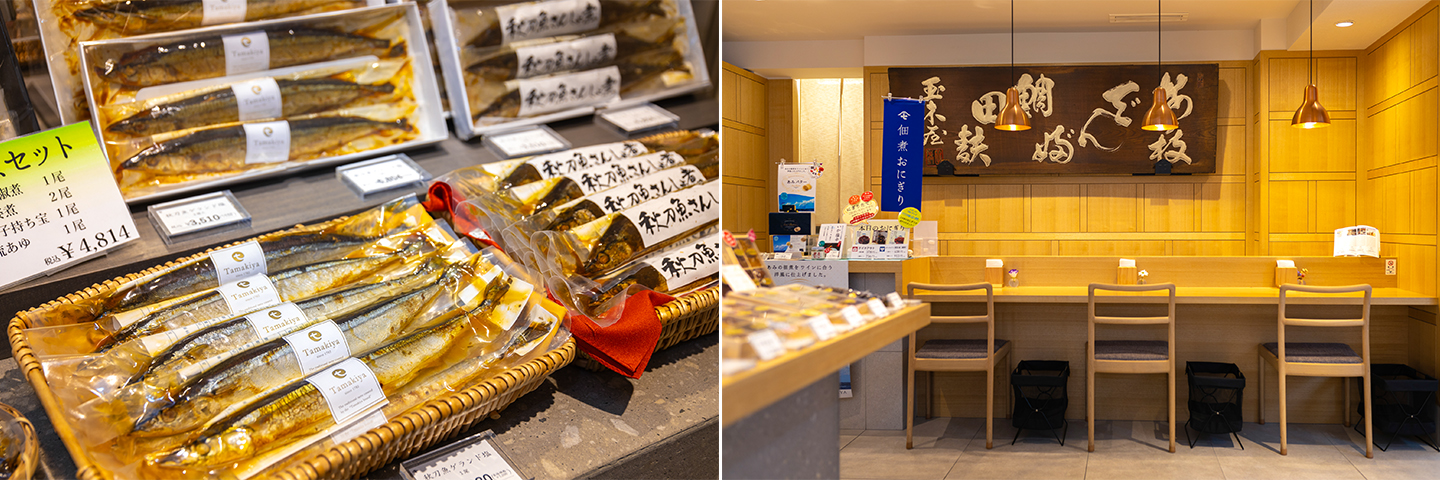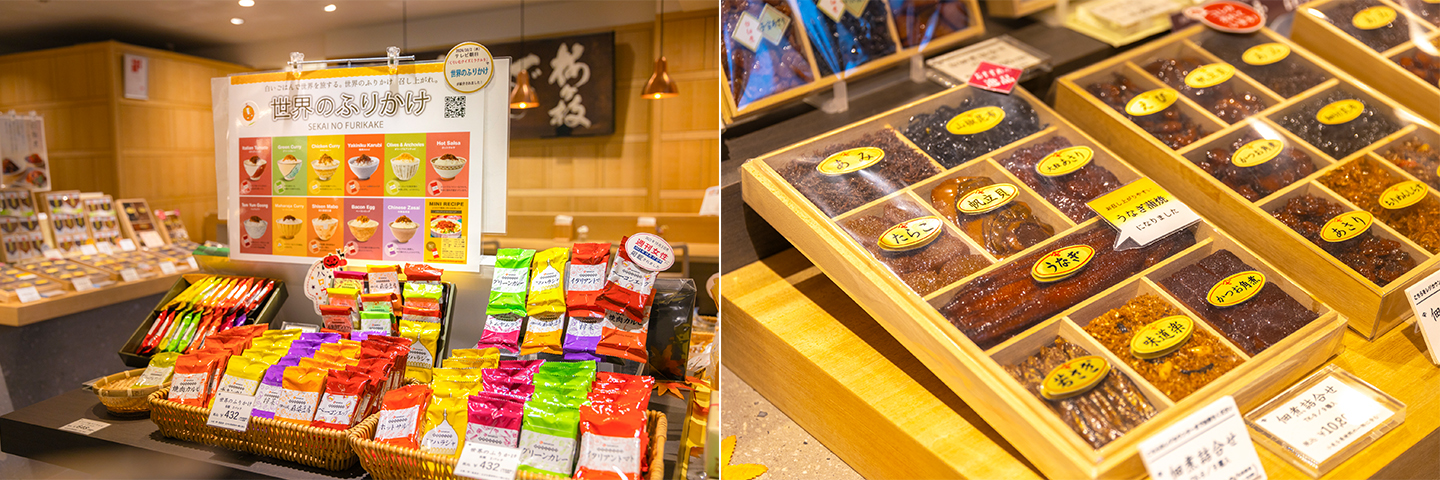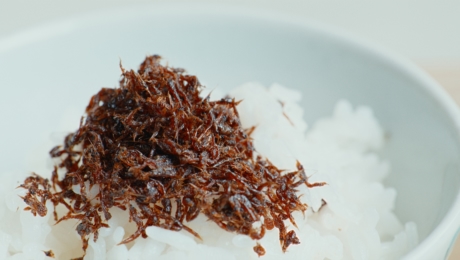

Wine and Tsukudani? Shinbashi Tamakiya’s New Frontier
2024.12.10
FOODAs inbound tourism recovers and health-conscious eating trends rise, Japanese cuisine continues to gain global popularity. With innovative new products introduced for international audiences, fresh encounters are opening up for Japanese consumers as well.
Shinbashi Tamakiya, a traditional business with a 240-year history dating back to the Edo period, has been evolving classic Japanese foods like tsukudani,furikake (dry condiment), and onigiri, winning over new fans in the process. Popular offerings include their “Sanma Guérande Shio,” made with French Guérande salt to pair perfectly with wine, and the World Furikake series, which recreates the flavors of international dishes like tom yum and green curry. Younger generations are flocking to their stores to try these creations and rediscover the traditional charm of tsukudani.
Kyoko Tamaki, the 10th-generation head of Shinbashi Tamakiya, reflects on her early days as company president. “I took up the role in the middle of the COVID-19 pandemic. Seeing people buying wine in bulk on TV inspired me to develop tsukudani for wine.” She adds, “We relocated our flagship store, installed a counter, and now offer a pairing course featuring tsukudani and wine. By combining these traditional elements, I hope to broaden the culinary experience.”

By pairing tsukudani with wine, Tamakiya is challenging conventions and enhancing the appeal of Japanese traditional cuisine. The counter also hosts workshops where participants can make original onigiri using Shinbashi Tamakiya’s tsukudani and furikake. While initially targeted at foreign tourists, these workshops quickly gained popularity among Japanese customers.
“Even among Japanese people, a significant number don’t know how to form onigiri properly,” says Tamaki. “The triangular shape, often known as omusubi, symbolizes sacred mountains and represents the bond between the gods of the mountains and us. This cultural reverence is rooted in Japan’s belief in yaoyorozu no kami—gods found in all aspects of nature. Through traditional foods like onigiri and tsukudani, I hope to share Japan’s spiritual heritage and its inclusive values, which I believe also contribute to peace.”
Tamaki attributes her perspective on how tsukudani are seen globally to her time in Singapore, where she managed market research, new product development, and department store events starting in 2010. “Simply selling tsukudani in department stores wouldn’t ensure our survival,” she realized, which led to her initiatives following her return such as revamping the e-commerce site and expanding sales channels.

“Honestly,” she admits, “my move to Singapore was partly to create some space between my mother and me.” As the daughter of the 9th-generation company president, she faced the challenges of a family business early on. “When I was two, my mother became president, and we had very little time together. It was hard, but seeing her work so hard inspired me to support her. By elementary school, I had already assumed I’d take over the company one day.”
After graduating from junior college, she joined Shinbashi Tamakiya, working in retail and corporate sales. While she earned her mother’s trust, navigating the blurred lines between work and family was difficult. Her time in multicultural Singapore helped her adopt a broader, more objective outlook.
“The more I learn about our 240-year history, the more I feel its weight. A complacent attitude of “good enough” leads to decline. What’s important is constantly thinking about how we can better delight our customers. To establish tsukudani as a global cultural staple, we have to keep evolving.”
Having inherited her mother’s legacy, Tamaki continues to promote Japan’s culinary heritage both domestically and internationally. Her innovative approach is reshaping the dining experience, blending tradition and modernity to enrich tables worldwide.



